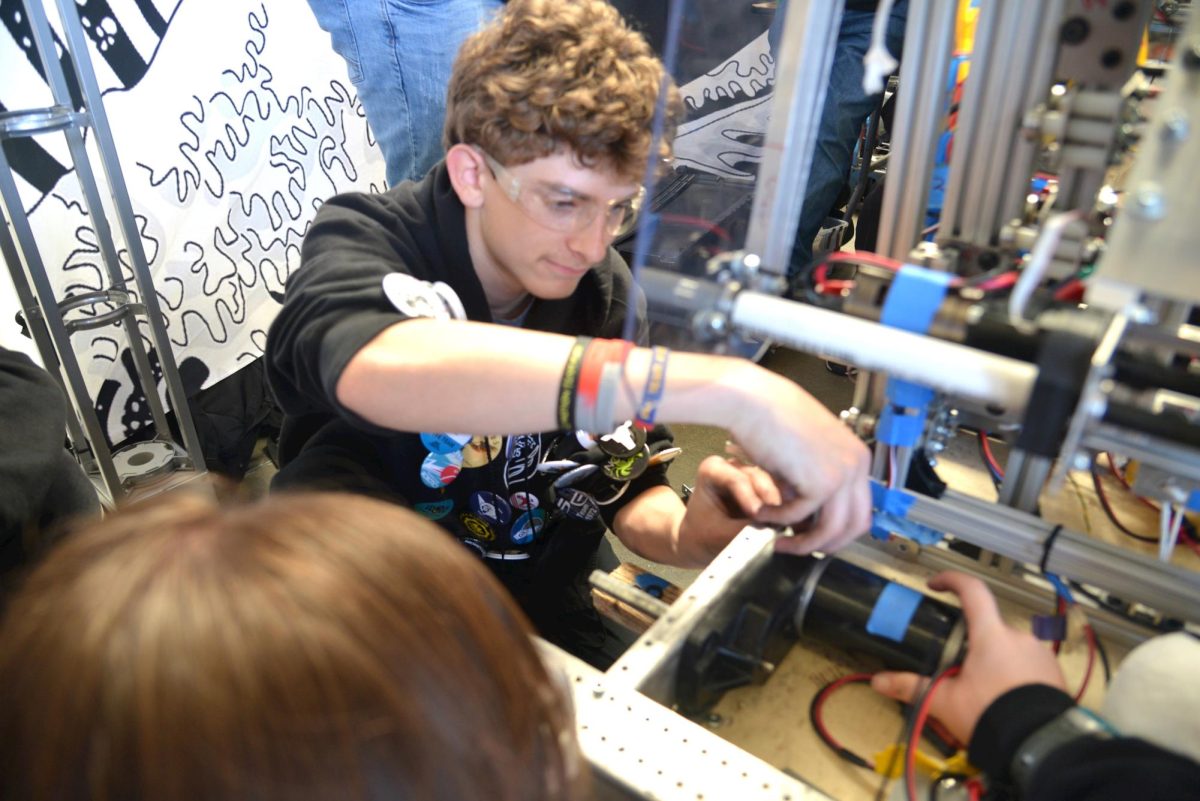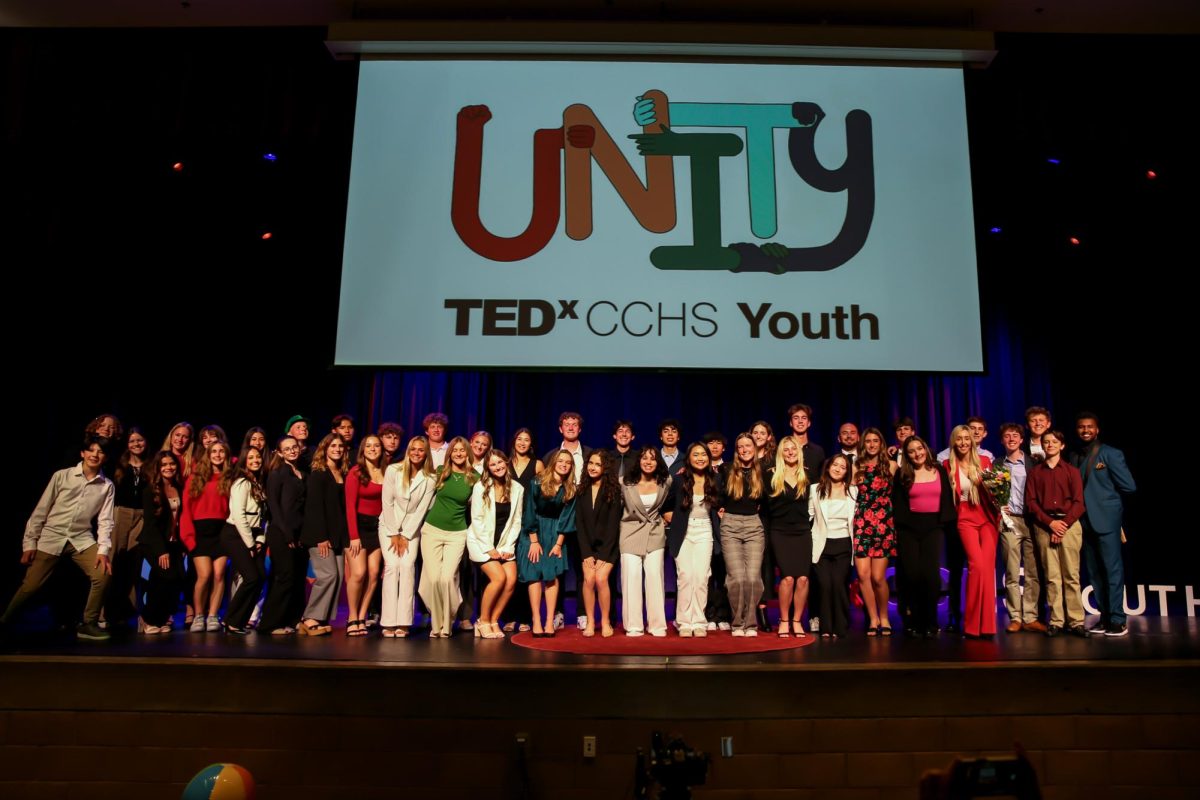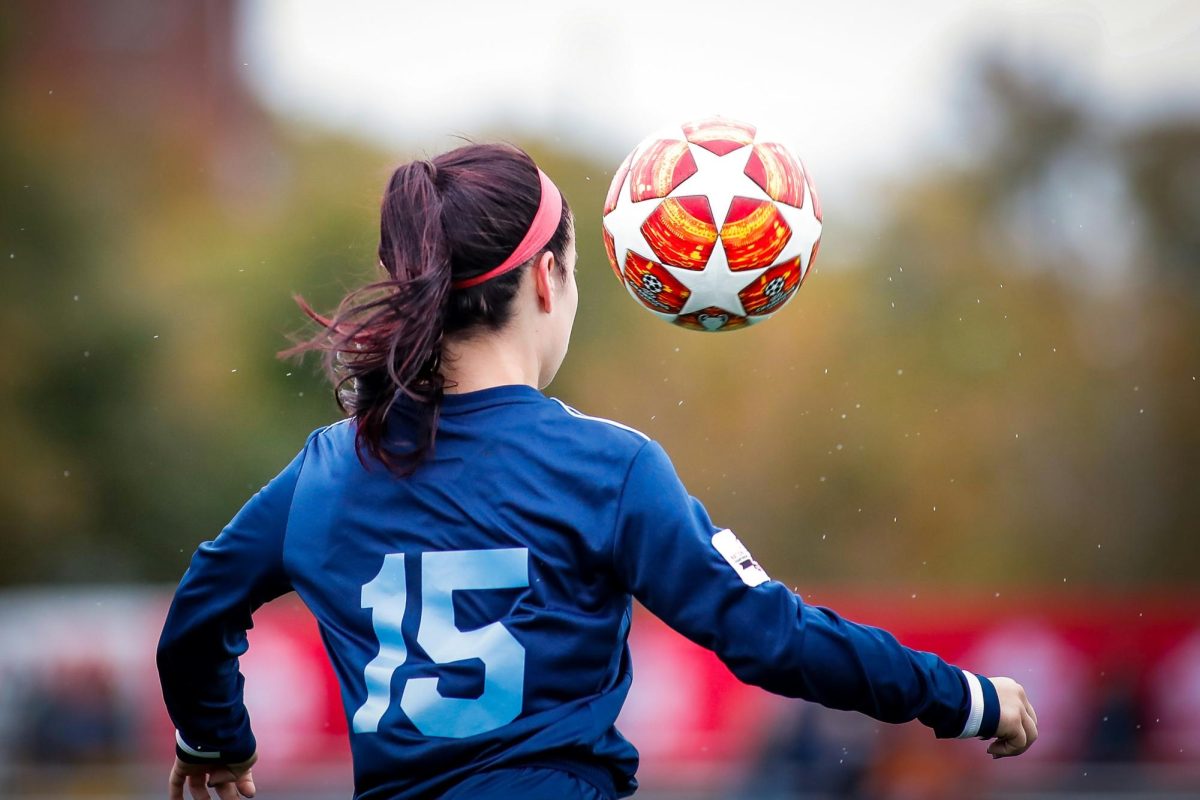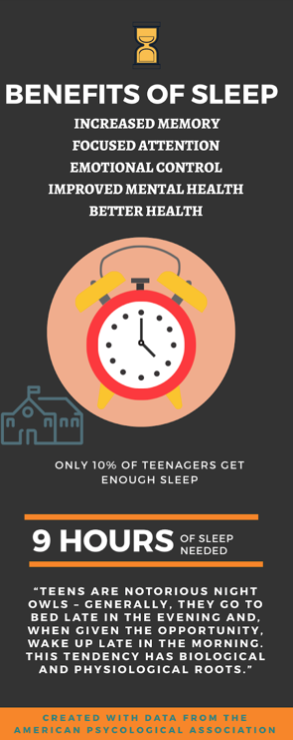Later to play, later to rise
School start time change influences the county
Despite various secondary effects changing school start time will cause, sleeping longer each night has been proven to benefit teenagers in a significant amount of ways and aid in their growth and development.
After a long school day of studying and playing tennis, the last thing Cathedral Catholic High School student Gigi Jasso ‘21 desires is to stay up late working on homework after a late game.
“I’ll have to start homework later, and I’ll have less time to do it,” Jasso said. “I’d rather just go straight from school to a game rather than having an hour of free time in between.”
There are only a limited number of hours in a day, and students often struggle with the best way to utilize those hours. Recently, California has taken steps to address this student health issue by delaying school start times.
Taking into account rising concerns about student health and hoping to promote the well-being of students, a California State Legislature bipartisan bill will mandate California schools to push back start times. Regardless of the benefits of a later start time, CCHS seeks to benefit from this bill not by delaying the start of school, but rather by maintaining excellent academics through effective scheduling.
CCHS Athletic Director Mr. David Smola believes the public school time change in California will indirectly benefit CCHS.
“The time change itself directly affects all public schools, and next year all San Diego city schools go to the time change,” Mr. Smola said. “The change will affect us by pushing back sport start times between half an hour and an hour.”
CCHS does not currently plan to change either the start or the dismissal time of the school day in alignment with the new public school policy.
“It really impacts us in a positive manner because we’re not going to have as many early dismissals, so our students are going to be in class for a complete day and not miss class,” Mr. Smola said. “It’s really going to impact public schools because they’re not going to be allowed to practice before school. They have to practice and play after.”
The bill, which passed in 2019, will take effect across public schools no later than July 1, 2022, and the San Diego Unified School District will implement the provision for the 2020-2021 school year. While there are exceptions for certain public schools, including schools located in rural districts, the bill encompasses the vast majority of public schools in the state.
While the bill targets school start times, and by extent school dismissal times, it has much further reaching effects. The implementation of the bill will push all after school extracurricular activities, like sports, drama productions, and club meetings, back to a later time.
“The fact is some sports need light to play, and most fields don’t have lights,” Mr. Smola said. “Schools are either going to keep a regular schedule and miss more school, or they’re going to have to handle the expense of putting lights on fields, which is expensive.
“The students are going to be missing school. In the long run, I think the public schools are going to have to deal with that issue, and it’s serious.”
Despite possible scheduling issues, starting school later does have a variety of health benefits for teenagers, both physically and mentally.
Dr. Joseph Buckhalt, a Wayne T. Smith Distinguished Professor Emeritus and former director of the School Psychology Program at Auburn University, advocates extensively for later school start times.
“I was an early advocate of later start times for teenagers, and I continue to be so, largely based on the research that has shown that many teenagers have trouble going to sleep early enough to get sufficient sleep when their classes begin so early,” Dr. Buckhalt said. “Teenagers are thought to undergo a phase shift that occurs after puberty that is characterized by later release of melatonin, the natural substance that induces sleepiness.”
Teenagers naturally fall asleep and wake up later as their brains develop, coinciding with delayed school start times more than current school start times.
With increased time allowed for sleeping, there are many possible benefits for students to gain, including reduced struggle with mental health issues.
“Sleep that is of insufficient duration, quality, and regularity has been associated with many psychological problems,” Dr. Buckhalt said. “Anything that improves sleep should help. Sleep insufficiency has been linked to poor cognitive and academic performance. Besides psychological health and academic performance, there are physical health benefits of better sleep, but there is no guarantee and the outcomes will need to be looked at over time.”
Highlighting the benefits of allowing teenagers to sleep in, Dr. Buckhalt also acknowledges that there could be drawbacks from the implementation of the bill, namely scheduling conflicts.
“If school starts later, that means it ends later, and that affects students who rely on work after school,” Dr. Buckhalt said. “It affects sports practices and games, and it affects siblings of teenagers who are relied upon to look after them after school.”
However, not all sports and extracurriculars will be inconvenienced. Indoor sports with access to lighting are less likely to be negatively impacted.
CCHS student and fencing team captain Emily Rotunda ‘20 has taken a more neutral stance on how the time change will affect sports.
“I don’t think it’s an issue, and playing an hour later is not going to be too bad,” Rotunda said. “We practice almost immediately after school, so the fencing team isn’t going to be affected too much. Later practices for other teams will be a foreseeable issue, however.”
While Dr. Buckhalt is hopeful the results of the time change will speak for themselves and provide a lasting benefit to students across California and eventually the nation, he acknowledges that skeptics should speak up.
“Early improvements may diminish,” Dr. Buckhalt said. “There is a phenomenon known as the Hawthorne Effect that essentially is with the introduction of any new change for which there are strong expectations, there are typically good results early on. Once the newness wears off, the gains sometimes are diminished or lost altogether.”
However, many benefits there may be for students to start later, some are skeptical it will benefit students, especially those who participate in extracurriculars.
“The unintended consequences are going to be a burden on some schools, and also schools that don’t have transportation, and students might not be able to play sports because of the time frame,” Mr. Smola said. “If you’re playing until 6 p.m. or 7 p.m. on a weekday, and you’re going home and studying and not going to bed until even later, it almost defeats the purpose.”
Mr. Smola believes the later start time is a matter of more than just mental health, and it not only affects the entire school district and the community, but it should also have more factors of consideration than circadian rhythms.
“The people who made the decisions don’t understand the input they were receiving from athletics, drama, and things like that,” Mr. Smola said. “You don’t get anymore time in a 24-hour day.”
Despite the chance that benefits to students could only be temporary, Dr. Buckhalt hopes later school start times will help students and address the problems sleep deprived students face.
“A good solution is to have all schools start later,” Dr. Buckhalt said. “It has become a much more complex set of circumstances than it was when the movement began. The core problem is sleep insufficiency in children and teenagers.
“Starting school later might help a bit, but it will not solve the problem in and of itself.”
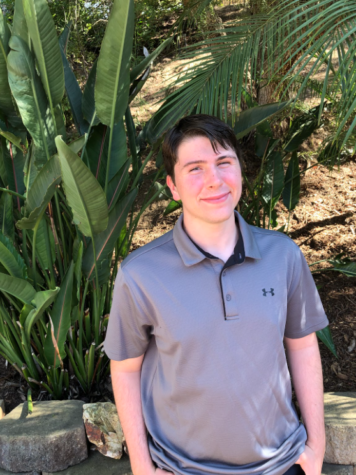
As the Arts and Entertainment Editor at El Cid, I plan to work hard and strive to improve my academics. During this school year, I look forward to applying...





